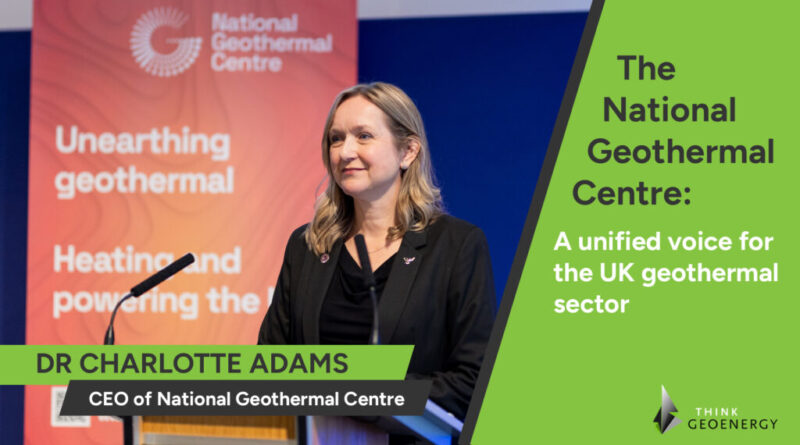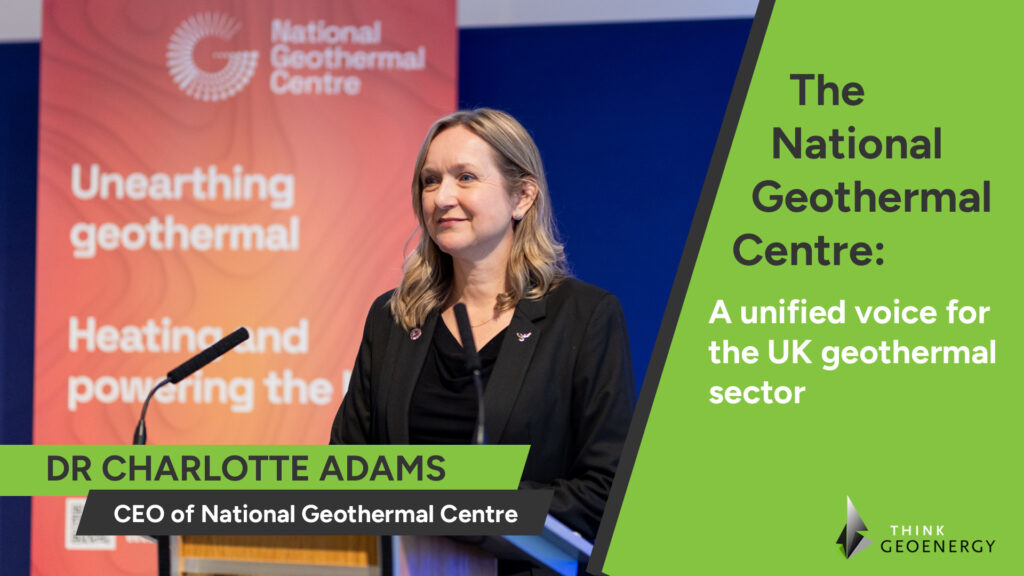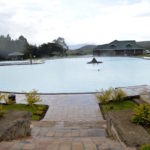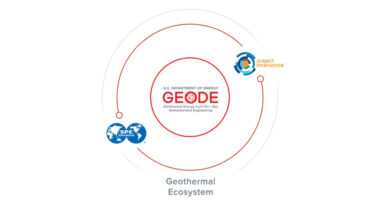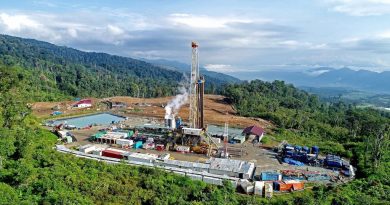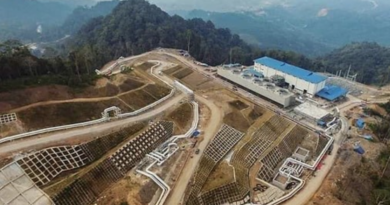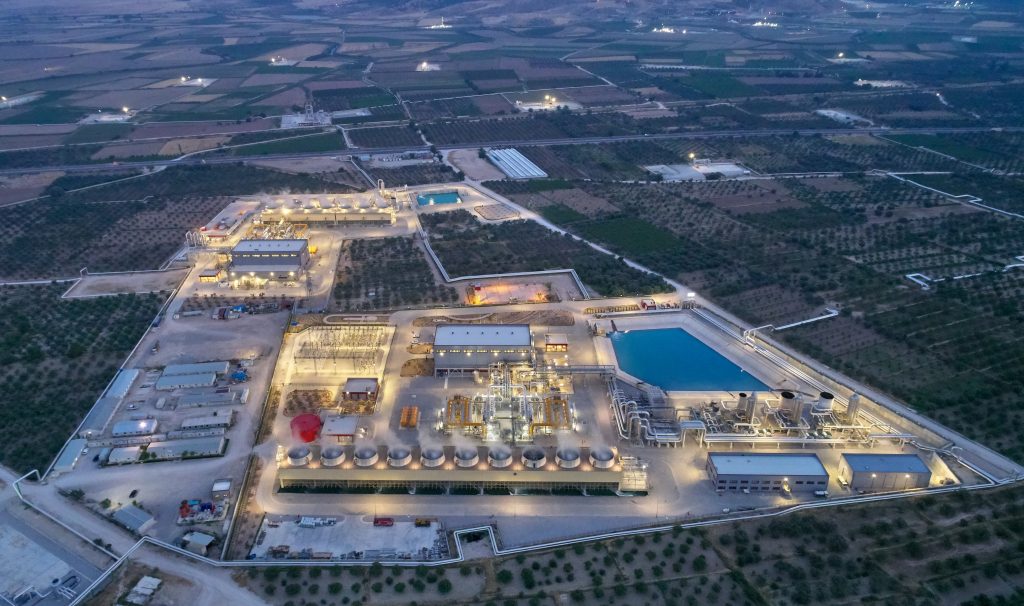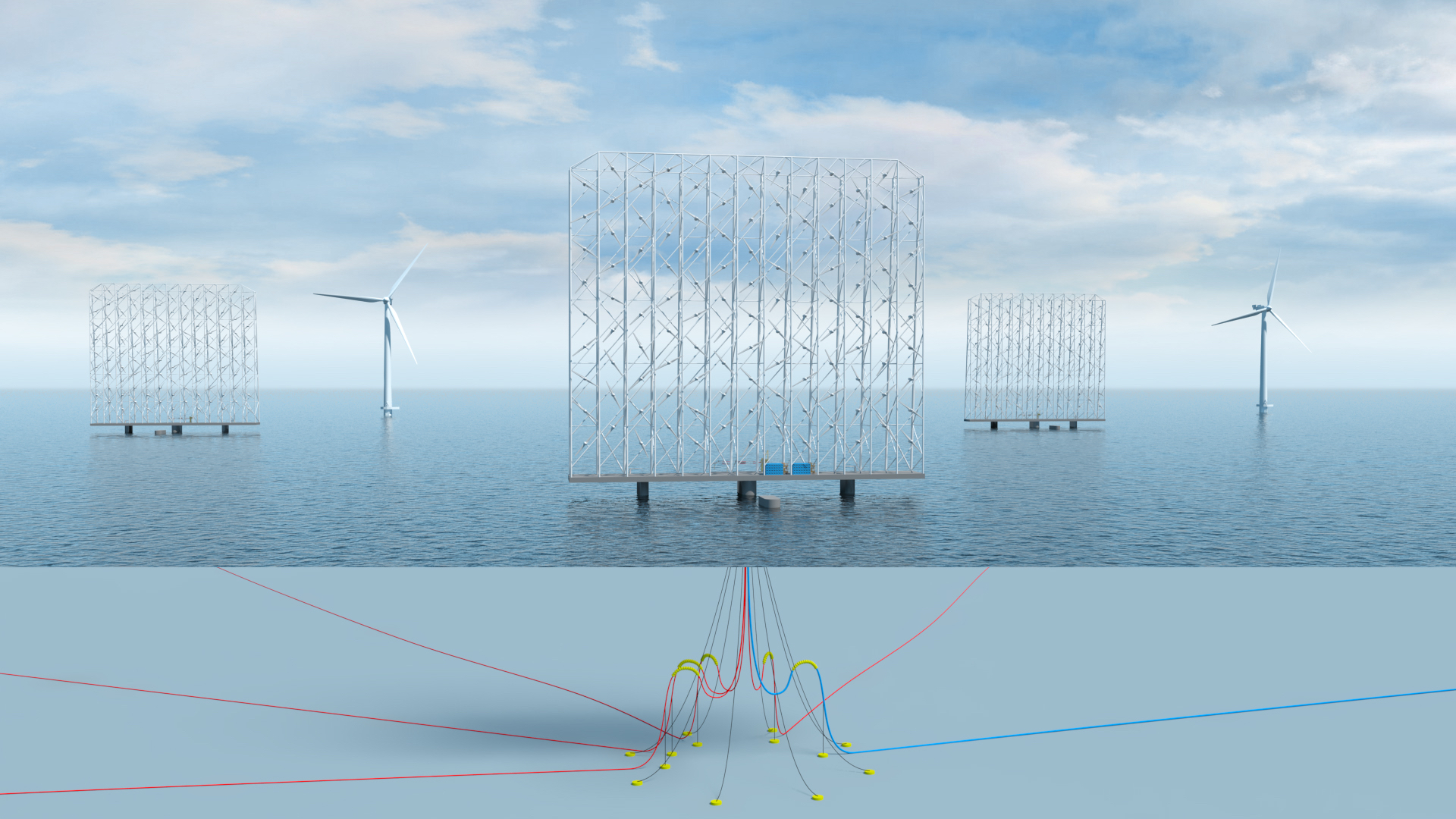The National Geothermal Centre: A unified voice for the UK geothermal sector
Energy Disrupter
In this interview, Dr Charlotte Adams tells us about the National Geothermal Centre and having a unified voice to supercharge the UK geothermal industry.
In June 2024, the National Geothermal Centre (NGC) was launched to bring together key stakeholders to enable geothermal development at speed and scale and contribute to building the UK’s secure energy future. As the first UK-wide geothermal non-profit association, the NGC aims to drive collaboration between government, industry, and academia to champion the increased integration of geothermal into the national renewable energy mix.
What exactly can we expect from the newly established NGC and what challenges in the UK’s geothermal sector are they addressing? To answer those questions, we talked with Dr Charlotte Adams, CEO of the NGC.
Bringing together the UK geothermal industry
The National Geothermal Centre was founded by Durham University, Net Zero Technology Centre (NZTC), SHIFT Geothermal, and The Reece Foundation as an independent but inclusive entity to supercharge the awareness and uptake of the untapped geothermal resources of the UK. One of its primary objectives is to bring together the efforts of individual players in the UK who have been working on different aspects of geothermal.
“The NGC was established to bring together a lot of the good work that has already gone ahead,” said Adams. “There have a been a lot of individual groups – in industry, academia, and policy and regulation, including local governments – that have been working on geothermal. However, there has not been a collective group to promote collaboration and action.”
Even the launch event of the NGC provided a platform for people in the UK’s geothermal industry who had not met before to have conversations and explore opportunities for collaboration. Adams wishes that the NGC can widen this platform for networking and collaboration across the country. “We don’t want to replicate something that has already been done, but rather share knowledge on the good work that is already being done out there, and identify where support is needed for geothermal growth.”
“A database of all the research work going on will be great, so that people can find somebody to work with when they are putting a bid together. The funding for academic research is so competitive. By forming cohorts of people through the centre, researchers can improve their chances of success in getting their projects funded.”
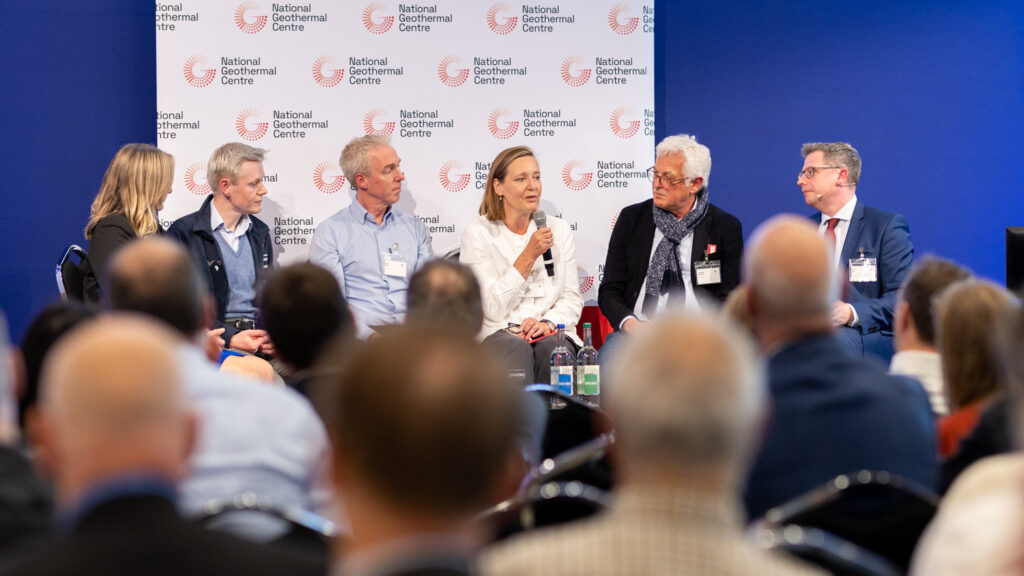
A 2050 roadmap for geothermal in the UK
The NGC has set ambitious goals for 2050 – 1.5 GW of geothermal power generation capacity and 10 GW of geothermal heat.
“Currently, no geothermal electricity is produced in the UK so that would be a big change,” admitted Adams. However, the benefits of this growth are well worth the effort. A geothermal industry of this scale could avoid CO2 emissions of about 10 million tons per annum, and create about 50,000 jobs with a lot more other indirect jobs in associated industries.
The detailed roadmap is currently still being drafted, but the NGC has already identified some priority areas. These will include addressing the upfront cost and risks associated with geothermal developments and advocating for the appropriate policy and regulations to support geothermal uptake. The roadmap will consider four key areas, including:
- Research and knowledge
- Policy and regulation
- Technology and innovation
- Integration with infrastructure
Raising awareness for geothermal
Raising awareness that there is a huge potential for geothermal in the UK will be a key focus for the NGC. There are already several successful geothermal schemes in the UK. The objective now is to get people to demand an increase in geothermal capacity. A homebuyer can perhaps say that they prefer a home connected to a geothermal heating network, or a business may want to relocate to an area that can offer geothermal heating and power.
Getting easy wins would be a good way to raise awareness about geothermal and for people to have confidence in the industry. A good example would be to look at the development of geothermal resources within disused mines or using former oil and gas infrastructure. The 6-MW Gateshead mine water heat scheme is a noteworthy success story under this category, where customers are charged 5% less than what they pay for gas.
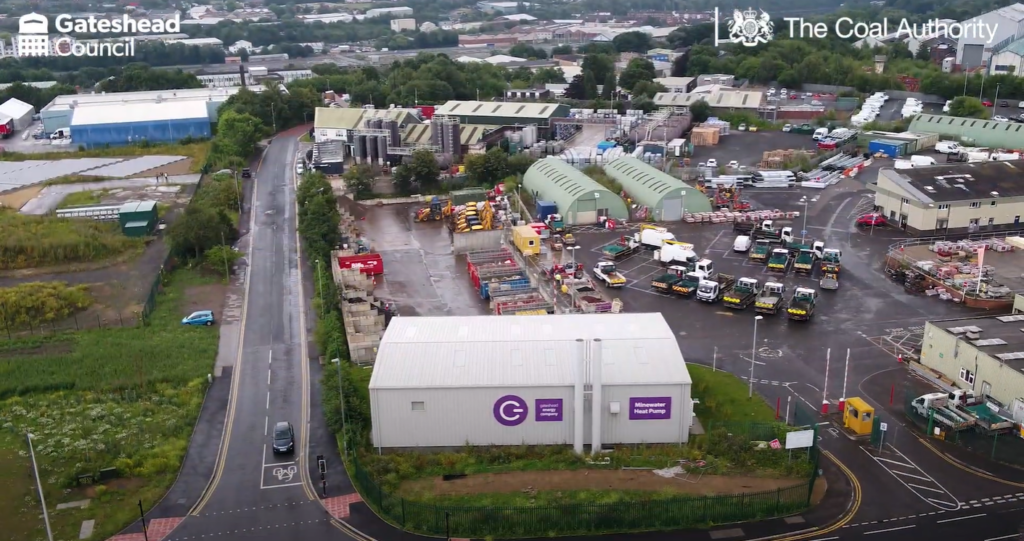
The NGC will continue to work on the roadmap in the coming year. This will involve a range of stakeholder workshops to gain an understanding of where the stakeholders are with their projects, what support they need, and how the NGC can best support them. This can also involve linking the academic community to the industry or to SMEs to create a cycle of technology innovation, financing, and deployment. The long-term plan is for the NGC to become a through funder for geothermal activities, the same way that the NZTC currently operates.
A focus on socio-economic benefits
According to Adams, public acceptance of geothermal in the UK has generally not been a problem. This is particularly true for geothermal projects that propose the repurposing of abandoned and disused mines. “In the mining areas, people are very pleased that something that was created by either them or their families and something that is now viewed as being from a dirty industry is now being reused to supply green energy and it also benefits them because they are living near it,” said Adams.
The limitations of geothermal heating benefitting mainly the local population can be also be viewed as one of its strengths. Heat cannot be transported too far, which means that the benefits of extracting it will have to be felt by the local community. “This is in contrast to coal mining. Yes, there was job creation while the coal was being mined. In the longer term, though, those communities did not necessarily benefit, which why some of them are still deprived today.”
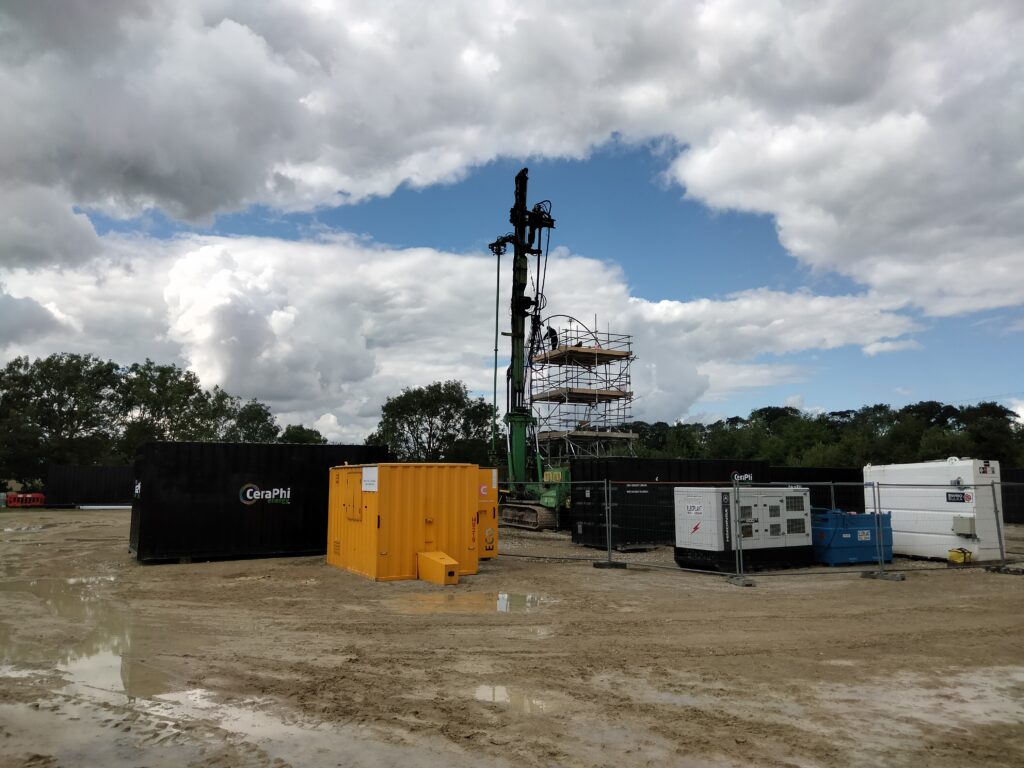
A “Dig Deep” report published by MP Kieran Mullan in 2023 highlights a study done by the Durham Energy Institute showing that the top 10 local authorities with the lowest economic resilience happen to have very good geothermal potential. This means that investing in geothermal in these areas will make a massive impact in reducing economic imbalances in the UK.
The improvement in quality of life of making the switch to geothermal can manifest in a number of ways. Taking gas boilers out of people’s homes removes the risk of any combustion-related accidents and potential sources of carbon monoxide poisoning. Reduced heating costs can make the difference between people not taking a shower and taking a shower because they don’t have to use an electric shower anymore.
“When people ask me what I do and I tell them, the response is usually: it’s a no-brainer, why are we not doing it?” said Adams.
Making geothermal more investment-friendly
Although there are schemes in the UK that can support the development of geothermal systems and heat networks, such as the Green Heat Network Fund and the Public Sector Decarbonization Scheme, it is quite difficult sometimes for developers to shoehorn geothermal into those schemes. The performance metrics for projects to be supported are quite stringent and do not really align with how geothermal works.
“There is an opportunity for the NGC to help advise any of the future government funding schemes to make them more suitable for geothermal,” said Adams.
The NGC is also in talks with the investment community to try and find out how to make investing in geothermal more attractive. This could be by clustering projects geographically or by type together to reduce the risk. For instance, spreading the risk between five or six geographically proximal projects in a portfolio can also reduce the costs of drilling because of lower mobilization costs.
“We need to tailor our approach because geothermal projects are long-term investments and there are longer time scales on their returns as well. We want to make geothermal attractive enough to make investors realise that once you have it running, then you have a stable income stream for a very long time. Having a clean, stable energy supply also means that you have more control over pricing.”
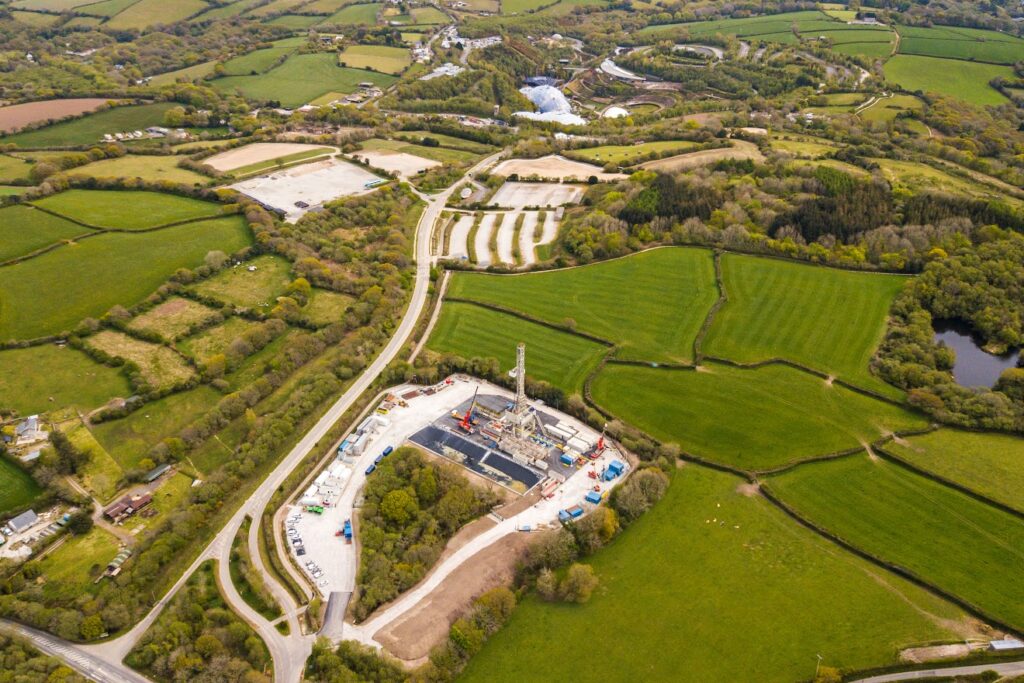
Another avenue for making geothermal more investment-friendly in the UK is by looking into technologies that can reduce capital and operational costs, or create more avenues for income. The UK has plenty of experience and existing supply chains in water well drilling and oil and gas exploration that can help reduce the uncertainty and risks in the early stages of geothermal development. Improvements in heat pump technologies or the use of binary power plant technologies can aid in enhancing heat or power output to fit better with the UK’s low to mid-temperature resources.
Giving a unified voice to the UK geothermal sector
“We have not really had a bespoke energy policy for many years, and the geothermal potential in UK is often not included in policy discussions and reports,” revealed Adams. “I’m hoping that if we can go en masse representing our stakeholders with a unified voice, then that might help to get geothermal greater support.”
There have been some positive developments that can benefit geothermal on the policy side. For instance, geothermal has been included as one of the energy options for heat network zoning trial projects. However, there still needs to be an incentive in some form specifically for geothermal so that the onus is put on the developers to invest and advance the resource, whilst delivering a payback during operation.
The NGC will be working with stakeholders across the industry to identify gaps where policy support may be required, and advocate for these. The goal is for the sector to have a unified message, rather than have the industry players approach policymakers independently.
On the international front, the NGC will be working with similar national and international organisations to exchange knowledge on matters such as operations, funding, and membership. The goals of the NGC align quite perfectly with the EU-wide goal of 250 GWs of geothermal energy by 2040 across heating and cooling, heat pump systems, and electricity generation. With plenty of opportunities for collaboration in the EU and beyond, the NGC is open to learning from countries that are further along with their geothermal industries.
“We very much want to collaborate with them as well and share knowledge and hopefully learn from any mistakes they’ve made and not go down the same path ourselves,” said Adams. “It is a very exciting time for the industry and we have a lot to do, but I think the timing is perfect for the centre.”

